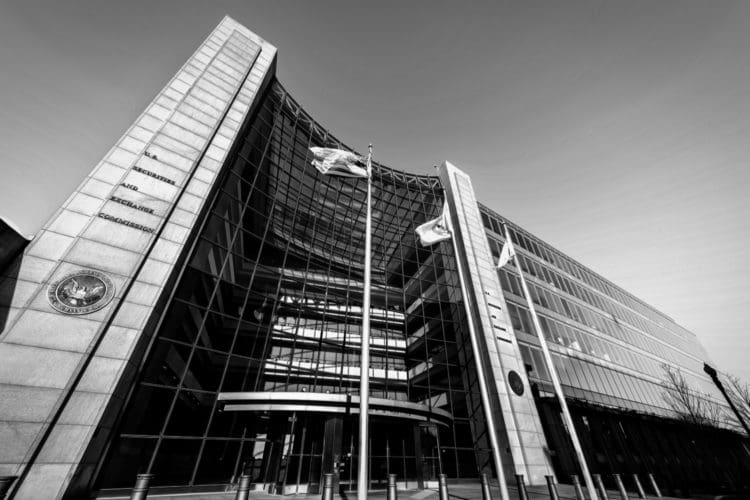WPP plc grew in to the world’s largest advertising agency, in part, by acquiring thousands of subsidiaries. While it found success leveraging the expertise of these acquisitions, it was unsuccessful in establishing a culture of compliance among them. In one instance, a WPP subsidiary in India received seven different anonymous complaints of bribery, but failed to act. Once the SEC got involved, however, the business cooperated sufficiently to stave off harsher enforcement.
WPP Settles with the SEC for $19.2 Million – Part 1
After a long hiatus, the SEC on September 24 arrived at a settlement with WPP plc, the world’s largest advertising group, for FCPA violations in India, China, Brazil and Peru for $19.2 million. The SEC’s resolution charges WPP with violations of the anti-bribery, books and records and internal accounting controls provisions of the FCPA. Access the SEC’s cease and desist proceedings here (PDF download).
Today, we announced that London-based WPP plc, the world’s largest advertising group, has been charged for violations to the Foreign Corrupt Practices Act (FCPA).
Read more:https://t.co/jnV7kmU6rM pic.twitter.com/3CDP4O7uDE
— U.S. Securities and Exchange Commission (@SECGov) September 24, 2021
WPP has dual headquarters in London and New York City, and operates through a large network of subsidiary agencies in numerous international locations, referred to below as “networks.” In a number of cases, WPP acquired small, localized agencies in high-risk markets, such as India, China and South America, that were previously owned by the local agencies’ founders. WPP’s shares (in the form of ADRs) are registered with the SEC and traded on the New York Stock Exchange.
This article was first published as a three-part series in Corruption, Crime & Compliance, Michael Volkov’s blog. It is compiled here in its entirety.
WPP’s Accounting Control and Compliance Policy Failures
WPP implemented an aggressive growth strategy that included acquiring a number of local agencies to build a global network of advertising capabilities, including emerging markets. In executing this aggressive growth strategy, WPP failed to ensure that its accounting controls and compliance policies were appropriately expanded to mitigate expansion of its business in these high-risk markets. Instead, as detailed in the factual statement, WPP deferred to the local CEO and founders of the acquired entities to exercise autonomy and influence over the local operations.
WPP founder Martin Sorrell was the CEO during much of the bribery conduct and aggressive acquisition activity. WPP operates in over 100 countries and currently owns or controls 2,241 companies.
In a number of cases, WPP established financial incentives for the local agency former CEOs to hit certain revenue targets in order to receive deferred payments under the acquisition agreements.
As a result, WPP failed to respond to repeated warnings of corruption or control failures at these subsidiaries. Even after receiving multiple complaints about ongoing bribery schemes, WPP failed to respond by ensuring proper investigations were conducted to determine whether the allegations raised in the complaints were true. In one stark example, WPP’s India subsidiary continued to bribe local government officials to secure government contracts despite the fact that WPP had received seven separate anonymous complaints reporting the bribery conduct.
As outlined in the SEC’s Administrative Order, WPP engaged in several bribery schemes involving subsidiaries in India, China, Brazil and Peru. These schemes will be described in greater detail in Parts II and III of this posting.
In India, WPP’s Indian subsidiary paid millions of dollars in bribes through intermediaries to Indian officials to secure government business. In China, WPP’s subsidiary paid a vendor to secure a favorable tax finding, resulting in significant tax savings to WPP’s subsidiary. In Brazil, WPP’s subsidiary made improper payments to alleged vendors to secure government contracts. And, finally, WPP’s Peruvian subsidiary acted as an intermediary for a local construction company to funnel bribes to fund a political campaign for the mayor of Lima, Peru.
WPP Cooperation Staved Off Harsher Enforcement
Under the SEC’s Order, WPP agreed to pay disgorgement of $10,114,424.86 plus prejudgment interest of $1,110,234.68 and a civil money penalty in the amount of $8,000,000.
In resolving the enforcement action, the SEC credited WPP’s cooperation and remediation. WPP’s cooperation included sharing facts developed in the course of its own internal investigations and forensic accounting reviews, translating key documents and making current and former employees located abroad available for interviews.
WPP’s remediation included (i) terminating senior executives and other employees involved in the misconduct and separating from employees with supervisory responsibilities over the misconduct; (ii) strengthening and expanding its global compliance, internal investigations, risk and controls functions, including the creation of 36 new positions globally; (iii) enhancing its internal audit function; (iv) creating network risk committees to prevent, detect, and remediate corruption risk; (v) conducting global, annual compliance risk assessments; (vi) conducting proactive reviews of remaining entities in Brazil, China, and India; (vii) streamlining businesses and back-office functions, including the merger of local networks into a smaller number; (viii) enhancing the procedures for engagement of third parties; and (ix) enhancing training provided to employees regarding anti-corruption, controls, and compliance issues.
A Deep Dive into WPP’s Bribery Schemes in India, China, Brazil and Peru – Part 2
The SEC’s FCPA settlement with WPP provides a rundown of a variety of bribery schemes in several high-risk venues. The schemes are instructive because they remind anti-corruption compliance professionals of the number of ways in which bribery can be carried out. In this way, the SEC’s enforcement action is informative and contains helpful reminders on various risks in the anti-corruption arena.
India
In July 2011, WPP obtained a majority interest in an agency located in Hyderabad, India. The co-founder CEO (A) was appointed to lead the subsidiary. Half of the India subsidiary’s revenue derived from the Departments of Information and Public Relations (“DIPR”) in the two states of Telangana and Andhra Pradesh, which were responsible for retaining media agencies to conduct advertising and public relations campaigns for their respective state governments.
Starting in 2015 and continuing to September 2017, WPP received seven anonymous complaints alleging two specific bribery schemes involving the DIPR. The first involved the use of a third-party agency (“Vendor A”) used to purchase media for DIPR and the creation of an off-the-books slush fund. The second involved a fabricated advertising campaign in order to create a second off-the-books fund at a third-party agency (“Vendor B”) to compensate DIPR officials for awarding contracts to the Indian subsidiary and the personal benefit of CEO A.
Vendor A Bribery Scheme: As detailed by the SEC, the Vendor A bribery scheme worked as follows: (1) DIPR awarded WPP’s India subsidiary a contract under which it created an advertisement and then purchased space in newspapers to display the advertisement; (2) DIPR paid a set publicly-available fee to media agencies for purchasing advertisement space (the “card rate”); (3) CEO A was able to negotiate rates with the newspapers that were significantly less than DIPR’s card rate; (4) to utilize the difference between DIPR’s card rate and the actual price paid to the newspapers for bribes to DIPR officials, the India subsidiary entered into the agreement with Vendor A to purchase the advertising space on DIPR’s behalf; and (5) after paying the newspapers and taking its cut of the scheme, Vendor A facilitated payments to DIPR officials. This same mechanism was used to make payments to CEO A.
After receiving an initial complaint in July 2015 identifying the ongoing bribery, WPP directed its India financial director (“India FD”) to investigate the allegations. The India FD hired an international accounting firm. The accounting firm, however, relied on information provided by CEO A and the India subsidiary CFO (“CFO A”), did not communicate with any third parties, and provided a report that did not address the bribery allegations. The accounting firm’s report only noted certain red flags regarding Vendor A.
In the spring of 2016, WPP received three additional anonymous complaints related to the Vendor A bribery scheme. The India FD retained the same accounting firm and requested the firm to conduct a transactional review of India Subsidiary’s business with Vendor A. As part of the review, Vendor A was asked to produce documentation of relevant invoices. Vendor A refused to do so. The India CFO terminated the relationship (but allowed the subsidiary to pay outstanding amounts due).
Vendor B: The second bribery scheme involved the Indian subsidiary paying DIPR officials through an intermediary. In this scheme, DIPR paid the India subsidiary $1.5 million to allegedly execute a media campaign to celebrate the formation of the Indian state of Telangana in June 2015. In reality, no such campaign occurred. Instead, CFO A requested that Vendor B falsify documents to reflect that Vendor B provided services for the campaign to justify paying money to Vendor B, which in turn paid over $1 million to a third-party intermediary responsible for making payments to DIPR officials. With the remaining funds, Vendor B made cash payments to CEO A and the India subsidiary to pay overdue receivables from unrelated clients.
In 2017, WPP received additional anonymous complains about the bribery schemes. WPP directed a member of its legal team to conduct an investigation which included review of various email accounts stored on servers in the U.S. The legal investigation identified email communication dating back to 2015, that confirmed the bribery payments. Ultimately, CEO A admitted that he was aware that third parties made payments to government officials on behalf of India Subsidiary, and WPP terminated both CEO A and CFO A. As a result of the bribery schemes at India subsidiary, WPP was unjustly enriched by $5,669,596.
China
In 2014, WPP obtained a majority interest in an agency headquartered in Shanghai, China, which focused on celebrity branding and endorsement. WPP appointed the local co-founder as CEO (CEO B). In November 2018, the China subsidiary was able to avoid paying $3.2 million in taxes to a Chinese tax authority by making payments to a vendor identified by tax officials and providing $2,000 worth of gifts and entertainment to tax officials during the same time period. The China subsidiary paid approximately $107,000 to the tax official’s chosen vendor in the two months before a tax audit was finalized. The vendor kept a small percentage of the money and transmitted the rest to an unknown recipient. Although the China subsidiary’s books and records reflected that the vendor performed services for a client, an employee falsified documentation to justify the transaction.
Despite the presence of red flags that, if properly investigated, could have led to the prevention or detection of the China subsidiary’s improper payments, WPP did not uncover the scheme until early 2019 while conducting an unrelated review.
In 2017 and 2018, WPP was aware of significant red flags related to China Subsidiary and CEO B surrounding its tax audit and improper use of a vendor. WPP received an email complaint outlining serious concerns but took no action. In June 2018, WPP overlooked another warning sign stemming from CEO B’s inconsistent explanation of the resolution of the tax audit.
Later, WPP uncovered an off-the-books account maintained by the China subsidiary reflecting the payments to the vendor recommended by the tax officials. As a result, CEO B finally resigned in April 2019 – a year and a half after WPP first became aware of the significant issues at the business
Brazil
In 2016, WPP obtained a majority interest in a public relations agency in São Paulo, Brazil. WPP agreed that the Brazil subsidiary’s minority owner would serve as the CEO (“CEO C”). WPP had an adviser payment policy that prohibited its companies from paying third parties to assist in obtaining or retaining government contracts without WPP’s approval. Despite the policy, the Brazil subsidiary made improper payments to vendors in connection with securing government contracts at CEO C’s direction. These payments directly violated WPP’s adviser payment policies and were made in circumstances in which there was a high probability that a portion of the payments may have been passed to the government officials with the authority to award the contracts. To disguise the fact that the Brazil subsidiary’s payments to the vendors related to obtaining or retaining government contracts, it falsified its books and records to reflect that the vendors performed bona fide services, such as marketing or IT services.
Peru
In 1996, WPP obtained a majority interest in a creative services agency headquartered in Lima, Peru. WPP agreed that the Peru subsidiary’s founder and CEO would remain as CEO of the company post-acquisition (“CEO D”) and retain a 30% stake in the company. WPP terminated CEO D in 2018 for participating in a scheme to pay illegal bribes and manipulate the company’s earnings.
The bribery scheme involved a construction company funding the mayor of Lima’s political campaigns in exchange for contract awards. At CEO D’s urging, Peru Subsidiary agreed to be a conduit for the construction company’s bribe to the mayor of Lima. Also, CEO D disguised the corrupt source of the funds used for the mayor of Lima’s political campaign by funneling the construction company’s payments to Peru Subsidiary through WPP subsidiaries in Colombia and Chile. Consequently, the WPP subsidiaries in Colombia and Chile falsely recorded that they received money in return for services performed for the construction company, and the Peru subsidiary maintained no records indicating that the construction company paid for a portion of the mayor of Lima’s political campaigns. WPP did not uncover the Peru subsidiary’s role in the bribery scheme until a criminal proceeding highlighted the conduct in 2019.
Part 3: WPP SEC FCPA Enforcement Action: Lessons Learned
The SEC’s FCPA enforcement action against WPP presents a number of important lessons learned, ranging from third-party risk management, properly responding to employee complaints and red flags, and failure to integrate acquisition targets into existing compliance programs.
At bottom, WPP and its subsidiaries lacked any culture of compliance. While it is easy to cite all the deficiencies in the WPP subsidiaries, such a focus misses one important point – the importance of ethics and compliance is set by, promoted and depends on the tone and commitment from the parent organization. WPP lacked any real commitment and its tone permeated every aspect of its business operations.
Failure to Conduct Due Diligence
WPP’s subsidiaries failed to conduct appropriate due diligence for any of the third-parties involved in the various bribery schemes. Had due diligence been conducted, WPP would have learned about risk relationships between the local CEOs and relevant government officials. Of course, there is no guarantee that due diligence would have resulted in WPP preventing such high-risk relationships or insisting on robust risk mitigation steps.
Defective Responses to Employee Concerns
The SEC statement of facts is replete with instances where anonymous employee concerns were raised and not taken seriously. This reflected a failure on WPP’s part to respond properly to these concerns. As described by the SEC, some of the concerns described the bribery scheme in detail. Yet, WPP failed to appreciate these employee reports and failed to respond by launching appropriate investigations, conducting additional due diligence or analyzing financial data.
Improper Use of Outside Accounting Firm to Investigate Bribery Concerns
On one occasion in India, WPP retained a global accounting firm. The investigation launched by the accounting firm was improperly scoped and executed. The accounting firm failed to investigate the central allegation – whether the subsidiary was paying bribes to government officials. Instead, the accounting firm conducted a broad brushed investigation, failed to review email messages and conduct a focused financial inquiry. The oversight and execution of the investigation was deficient.
Failure to Uncover Local Employee Forgery and Falsification of Documentation
The SEC noted that on occasion WPP employees falsified or forged invoices and other documents relating to non-existent or inflated services allegedly provided by outside vendors. This failure to confirm appropriate documentation and services provided by a vendor underscores the risk that insiders can manipulate accounting controls by supplying false documentation. To remedy such problems, companies have to adhere to relevant accounting controls and ensure the absence of segregation of duty conflicts. WPP’s local operations lacked such basic controls.
Defective Internal Accounting Controls
To the extent that WPP maintained a proper set of internal accounting controls, it is not clear that these controls were even applied to acquisition targets, and even if extended, the controls were ignored. WPP’s internal accounting controls were defective on their face, and it is hard to imagine how WPP’s auditor never tested nor identified the weaknesses in its controls, particularly given WPP’s aggressive growth strategy. WPP’s rampant misconduct among its local subsidiaries demonstrates the important of design of internal controls that can be implemented across the organization and testing of the controls in local markets.
Absence of Acquisition Integration Planning
WPP’s blatant misconduct underscores the importance of integration planning and execution of acquisition targets. WPP adopted an aggressive acquisition strategy to grow its business in emerging markets. Given the high-risk nature of its acquisition strategy, WPP should have adopted a robust due diligence pre-acquisition program and detailed acquisition integration and audits. Such integration planning should have included prompt training, adoption of compliance program policies and procedures and conduct of an FCPA audit.
This post represents a three part series. It was republished with permission from Michael Volkov’s blog, Corruption, Crime & Compliance.




 Michael Volkov is the CEO of The Volkov Law Group LLC, where he provides compliance, internal investigation and white collar defense services. He can be reached at
Michael Volkov is the CEO of The Volkov Law Group LLC, where he provides compliance, internal investigation and white collar defense services. He can be reached at 








